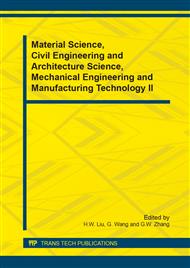p.1562
p.1566
p.1570
p.1576
p.1580
p.1586
p.1590
p.1594
p.1599
Generative Method for Query Recommendations of Search Engines with Respect to the Traditional Chinese Medicine Industry
Abstract:
The Traditional Chinese Medicine (TCM) industry is a traditional industry of China. A unique, comprehensive and systematic theory and method of diagnosis and treatment has been formed over thousands of years. A large amount of TCM literature and database resources need to be shared via the Internet for queries by professionals and A unique TCM-industry search engine has been developed to comply with such requirements. A new method for generating query recommendations according to the enquiry is proposed based on features of the TCM industry, on the authors’ experience and on learning from the enactment and development of the vertical search engine of the TCM industry. Different from methods used by other search engines such as Google, Yahoo or Baidu, the new method combines the features of the TCM-industry search engine and the Chinese word segmentation of the TCM industry. It uses algorithms to calculate the correlation between query recommendations and stores these in relationship database. Practice indicates that such a method generates accurate and industry-specific query recommendations promptly.It therefore has innovation and promotional value.
Info:
Periodical:
Pages:
1580-1585
Citation:
Online since:
September 2014
Authors:
Price:
Сopyright:
© 2014 Trans Tech Publications Ltd. All Rights Reserved
Share:
Citation:


